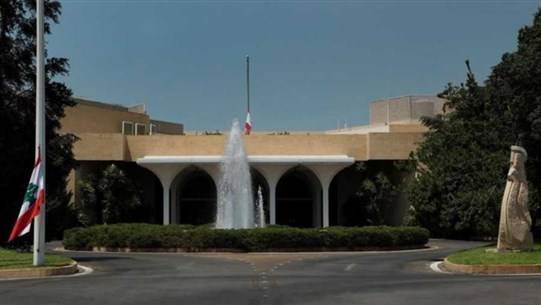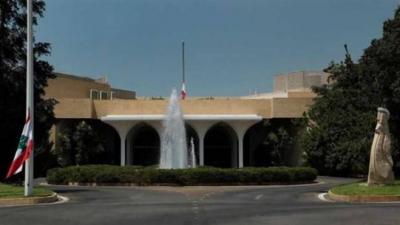There are those who believe that one of the messages conveyed in the speech of Hezbollah's Secretary-General, Hassan Nasrallah, regarding the presidential aspect, was directed internationally, to countries concerned with the Lebanese issue, just before a potential international movement that could put the presidential elections on the agenda. According to these views, the "party" deliberately informed the relevant parties about its basket of presidential specifications, which decisively cuts off many names categorized as moderate, independent, or similar classifications. This is because the opposing nominations, or those considered provocative or a challenge by the party, are not even up for discussion, at least from the perspective of the March 8 Forces.
In this sense, these individuals see that Hezbollah hastened to outline a broad framework for its presidential battle. Although Nasrallah did not mention the name of Sleiman Frangieh, head of the Marada Movement, as the most suitable candidate who aligns with the party's preferences, in essence, he inferred it. This is where the crux of the matter lies, as it brings the discussion about the presidential elections back to this specific point and shuts the door on anything else.
For these individuals, this specification speech, which was preceded by leaders and officials in the party detailing a set of criteria that a presidential candidate should possess, anticipates the possibility of international movement concerning the Lebanese file, which the French administration may lead during the G20 summit that has commenced in Indonesia. French President Emmanuel Macron initiated a call with Saudi Crown Prince Mohammed bin Salman, during which they discussed the dangers threatening regional stability. Discussions particularly focused on Lebanon, with President Macron emphasizing the necessity of electing a president as soon as possible to implement the essential structural reform programs needed for the country's revival. It was also agreed with the Saudi Crown Prince to continue and enhance their cooperation to meet the humanitarian needs of the Lebanese people.
Is there a serious initiative being led by Paris in light of its good relations with both Saudi Arabia and Iran, despite the recent "setback" in their relationship due to internal Iranian movements? In reality, proponents of this view believe that Paris has long been trying to hold a neutral stance to heal the rift between Tehran and Riyadh regarding regional files, with the goal of regaining some of its historical influence in the region, and consequently securing some contracts and commercial investments.
However, there are those who argue that the French administration's experience with the Lebanese file specifically is not encouraging at all. It has attempted on several occasions to take advantage of the turbulent situations that have hindered Lebanese elections to intervene as a mediator, yet it has never been able to achieve its desired outcomes. The series of setbacks faced by Macron since 2019, following his visit to Beirut after the port explosion, where his initiatives crumbled one after another and the efforts of his envoys and diplomats failed to succeed, are tangible evidence of the French administration's inability to navigate the Beirut landscape, simply because it does not possess sufficient influence to play a prominent role.
Based on this, advocates of this perspective assert that indicators do not imply that this new French endeavor will receive positive feedback, especially since what is leaking from Riyadh does not suggest that it has softened its stance on the Lebanese file. It still adheres to its criteria for the next president, as expressed in the trilateral American-French-Saudi statement. It is understood that those involved in the file assert that any potential regional settlement will be "American-Iranian-Saudi," meaning there is no need for French participation in it.
Nevertheless, there are those who believe that the open channel between Parliament Speaker Nabih Berri and Progressive Socialist Party leader Walid Jumblatt could take the presidential discussion to a middle ground, allowing Jumblatt to work on convincing the Saudi leadership to participate in the presidential settlement if the conditions mature.




